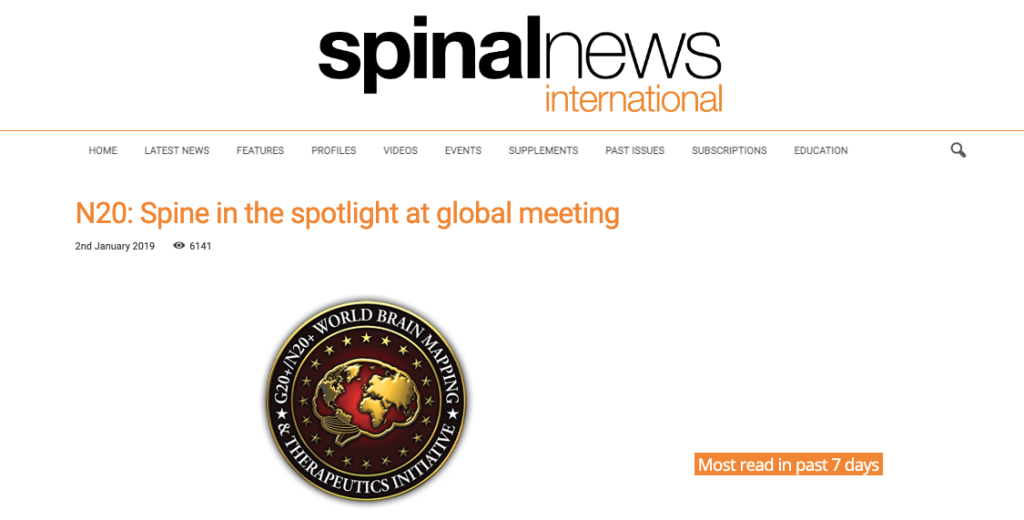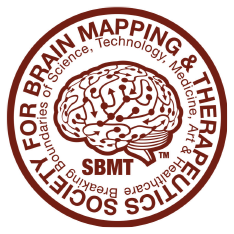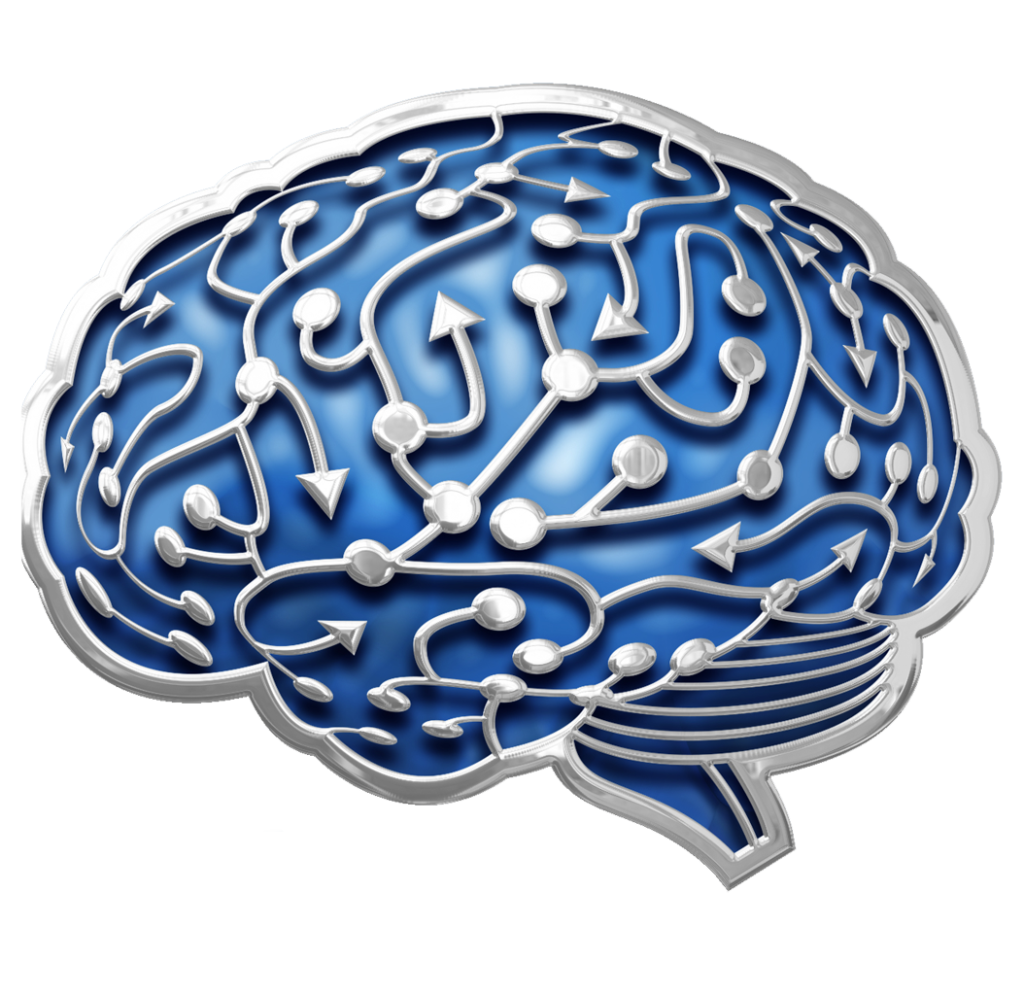
The Society for Brain Mapping and Therapeutics (SBMT) and the Brain Mapping Foundation (BMF) recently hosted their 5th Annual Neuroscience-20 event in Buenos Aires, Argentina (N20; 26–27 November). For the past five years the goal has been to get neuroscience treatments and innovation on the radar for the G20 meeting, the main international forum for economic, financial and political cooperation.
Presently, the global economic burden of brain, spine, and other nervous system disorders amounts to over US$13 trillion annually. Organisers of the N20 believe that if G20 nations understand the immense scope of neuroscience-related disability issues facing the globe, they can work together to find treatments and fund innovative research, including spine research. In 2014, the first N20 meeting was held in Australia and over the last five years the group’s aims have been clarified.
This year, the North American Spine Society (NASS) was involved for the first time, bringing spinal issues into focus. Key talks on spine covered numerous topics, ranging from spinal care in a global context and its associated costs, to technological advances, such as navigation, robotics, and 3D virtual planning.
The programme this year also featured thought leaders in neuroscience from the EU, USA, Argentina, Chile, Brazil, and Turkey. At the end of the two-day meeting, Babak Kateb, founding chairman of the board and CEO of SMBT, and Alejandro Mercado, president of N20-Argentina, presented the group’s neuroscience recommendations to ministers, ambassadors and VIPs of the G20 nations.
Jeffrey Wang, NASS president and president of SMBT, is committed to a global approach to spine care. “It is important to be organised on an international level,” he told Spinal News International. “The incidence of spine disability is increasing and to address this we need to raise awareness and pool resources,” he continued.
He noted the importance of getting “everyone at the table” and ensuring there was a focus on preventive, non-operative measures as well as developments in spinal surgery. He stressed that “tangible projects” will be the way to achieve the ambitious yet necessary goals of the N20.
Kateb has been heavily involved in global neuroscience legislation and policy for several years. He has chaired seven Brain Mapping Day briefings on the latest innovation in brain and spine diagnostics, therapeutics and policy as well as topics related to the wounded soldiers and veterans with neurological disorders at the US Congress and organised several brain mapping days at the Canadian and Australian Parliaments in 2012 and 2016, respectively. He was also one of the key players in President Obama’s BRAIN initiative.
Speaking exclusively to Spinal News International, Kateb says we need need “robust global partnerships” in order to “push innovation and reduce the costs of healthcare”. He believes progress is being made, however gradually, and that an increased emphasis on spinal care is a positive step forward.
The N20 group plan to publish the recommendations it made at this year’s summit in high impact scientific journals, publicising findings and recommendations through a series of press releases. Some of their specific aims for this year were to account for the global economic burden of diseases and injuries of the brain, spine, retina, and peripheral nervous system, promote a whole-of-government approach to address brain and spine disease and injury (BSDI), and to fund the responsible application of technologies associated with the digital transformation for brain and spine research and clinical treatment.
Their recommendations included encouraging the funding of studies analysing the economic burden of neurological, psychiatric and spinal disorders, and more importantly, the establishment of an international data repository, encouraging investment and global networking, initiating preventive programmes, improving technologies and creating global regulations and guidelines.
The next N20 meeting is set to take place 27–28 June 2019 in Osaka, Japan.




